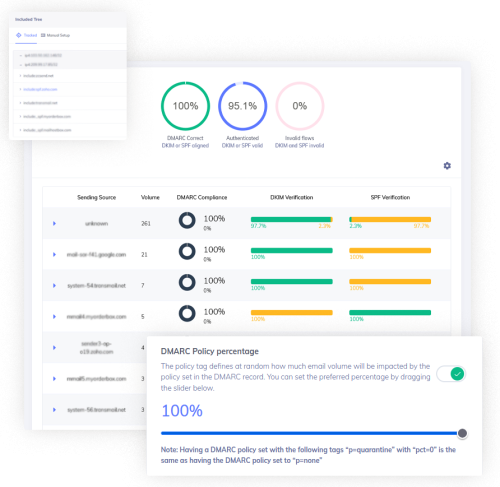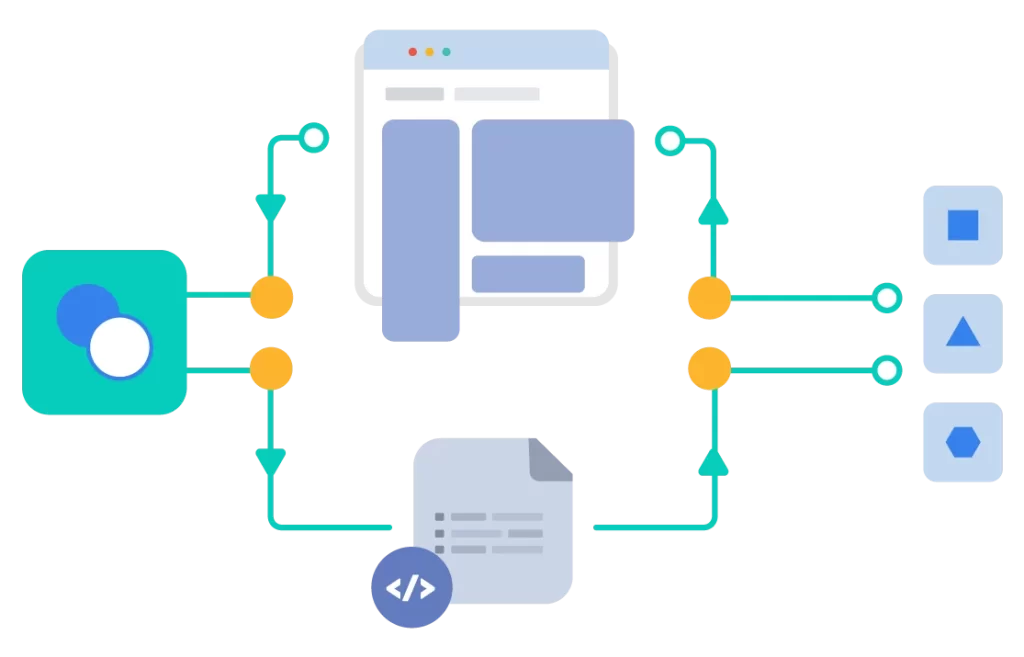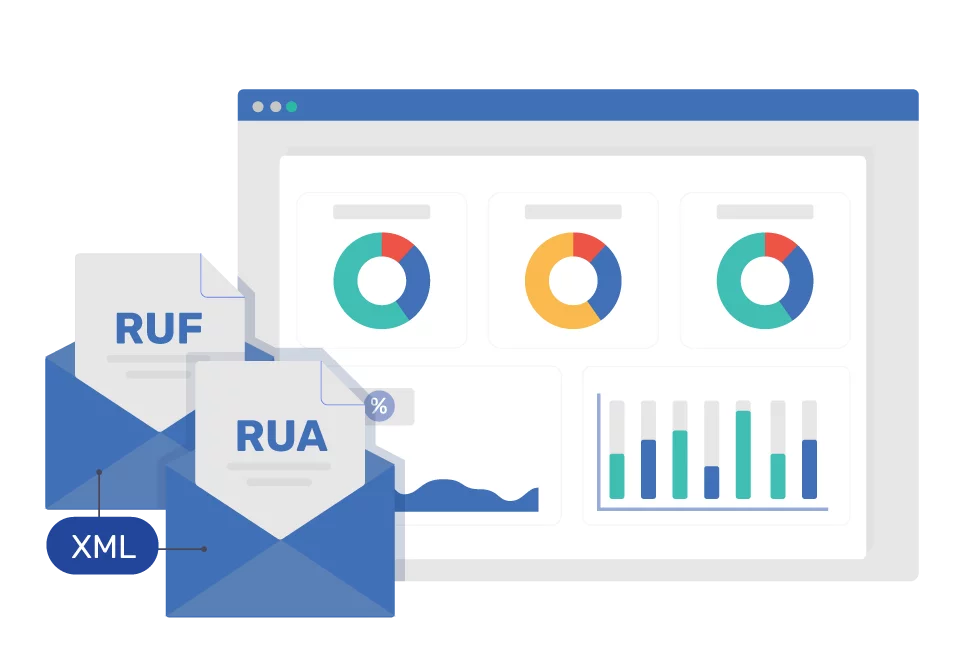Our DMARC report analyzer tool converts complex XML files into information you can understand and analyze easily. We process, organize, and segregate your DMARC, RUA and RUF report data in a format that is both human-readable and visually appealing, with zero technical knowledge required!


Instantly convert DMARC XML aggregate report data into a human-readable format using this DMARC report parsing tool.

Track your SPF, DKIM, and DMARC authentication results on a single DMARC converter interface.

Survey your email channels and check mail flow to outperform your competitors’ email deliverability metrics.

View your DMARC aggregate report data in 7 different viewing formats with our DMARC XML parser to filter specific to sending sources, results, organization, geolocation, etc.

If your emails are failing DMARC, use human-readable RUA data from our DMARC parser to fix the issue and improve deliverability

Our DMARC parser comes with PGP forensic report encryption, ensuring your private email content stays hidden from any third party – including us!

Unauthorized IPs sending emails from your domain are easy to find in the report

Export your aggregate reports in comprehensive CSV/PDF formats to share them easily with your employees and across departments.

In the event of a spoofing attempt, you can identify and block abusive IPs


Sign up with VebDMARC and create your TXT record for DMARC using our DMARC generator tool. Make sure your mention an RUA address.

Use our self-service setup wizard to add your domains to our platform.

Start receiving and analyzing DMARC reports within 72 hours.

DMARC Forensic Reporting allows you to receive reports on the status of emails sent through your domain that fail DMARC, SPF, or DKIM validation. These reports contain detailed diagnostic information that makes it possible for you to identify the source of the failure and fix it.
Forensic reports are generated every time an individual email fails DMARC authentication and contain information specific to that single email and are generated and sent to whatever email is specified in the domain’s DMARC record. The data they provide, which we organize on our DMARC report analyzer, can be extremely useful in not only identifying delivery issues in your domain, but they’re also an effective way to find out if someone’s trying to spoof your domain since they provide the sender’s IP address as well.
DMARC Aggregate Reporting, or RUA, is a feature central to DMARC, setting it apart from previous email authentication protocols. DMARC RUA allows you to receive daily reports sent from receiving email servers telling you which emails did and did not pass DMARC, SPF, and DKIM authentication. It also tells you about their DMARC alignment.
RUA data is instrumental to DMARC because it’s a way for domain owners to not only identify where they may be having email delivery issues but also discover if someone is trying to spoof their domain. This allows them to take quick action to resolve the issues and secure their email channels.

Copyright © 2025 VebDMARC
a division of AppCroNix Infotech Private Limited
All Rights Reserved.
an AppCroNix Group company.